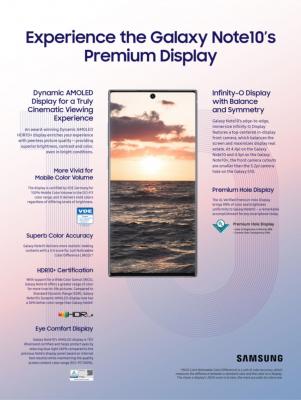OLED Smartphones - introduction and industry news - Page 29
DSCC: OLED to overtake LCD production capacity for mobile applications in 2020
DSCC says that OLED mobile display production capacity will overtake LCD capacity in 2020, and will reach a 65% market share in 2025.
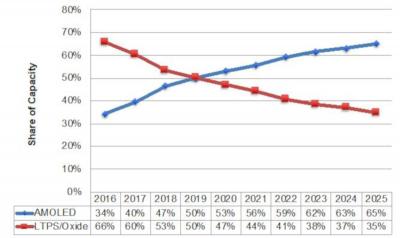
Looking at the entire display market (mobile and TV and others), DSCC sees OLED production capacity rising at a 20% CAGR till 2025, and OLED's market share will rise from 5% in 2019 to 14% in 2025.
We now list Visionox's 6.01" 1080x2160 AMOLED display on the OLED marketplace
Today we have added a new AMOLED panel to the OLED Marketplace, a 6.01" 1080x2160 AMOLED display with on-cell touch - produced by Visionox in China.
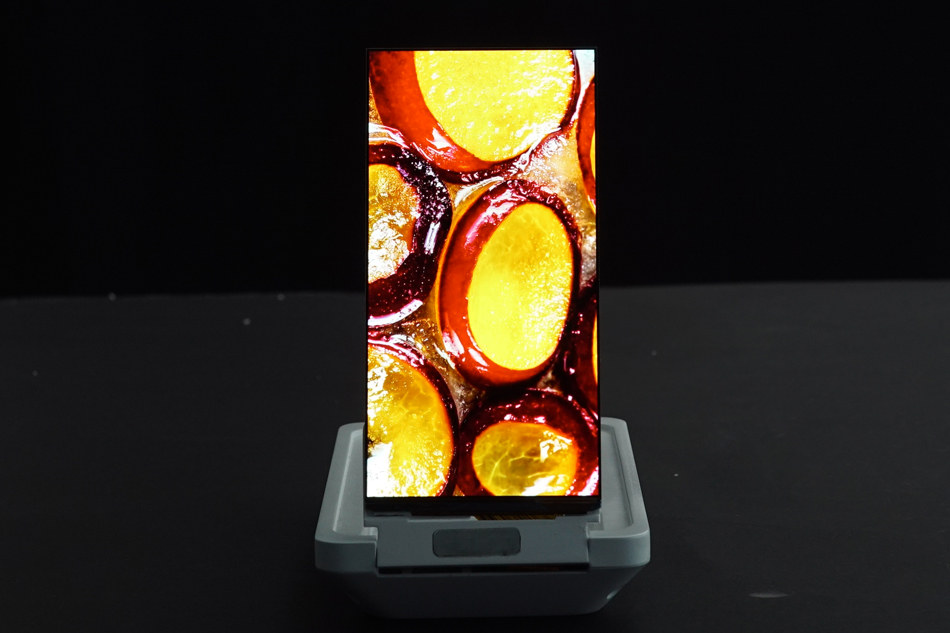
This is a high-end AMOLED display suitable for smartphones and other applications - and it is now available at an affordable price at our supplier. Check out more information over at the OLED Marketplace, or contact us now.
Apple announces its 2019 iPhone and Watch lineup
Yesterday Apple announced its 2019 iPhone and Watch Lineup - with all the devices but one with OLED displays. We'll start with the iPhone 11 Pro which uses a 5.8" notch-type 2436x1125 (458 PPI) AMOLED display and features Apple's latest A13 Bionic chip, 64/256/512GB of storage, a triple camera setup, HDR, FaceID - and is water and dust resistant.

The iPhone 11 Pro Max is quite similar, but it offers a bigger display - a 6.5" 2688x1242 AMOLED (same PPI - 458). Both phones will ship on September 20. The iPhone 11 Pro starts at $999 while the iPhone 11 Pro Max starts at $1,099.
Samsung to start shipping the Galaxy Fold in Korea tomorrow
In April 2019, after early reviewers reported that that the foldable screen in their Galaxy Fold devices broke down after a day or so, Samsung decided to delay the release of its foldable smartphone, the Galaxy Fold. The company finally announced that it will start shipping the Galaxy Fold tomorrow, on September 6. Samsung will start rolling out its first foldable smartphone soon in more countries, including Europe and the US.
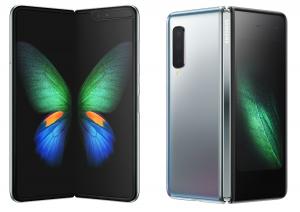
It took Samsung around three months to re-design the phone and fix all the issues. Samsung updated the design and also upgraded the construction to better protect the device from external particles. Samsung also took the time to improve the user interface of its new, and optimized more apps and services for its unique foldable UX.
BOE shipped 9.1 million AMOLED displays in H1 2019, warns of weak flexible OLED demand
BOE says that it shipped 9.1 million AMOLED displays in the first half of 2019 - better than expected as Huawei increased its OLED penetration to 24% in Q2 2019 (up from 9% in Q2 2018). BOE though warns of weak demand for flexible OLEDs and the company lowered its 2019 fully-year guidance to 30 million units (down from 30-50 million).
BOE further announced that it will delay the phase 3 of its Chengdu B7 6-Gen OLED fab due to the weak flexible OLED demand. CLSA estimates that BOE ships more than 60% of Huawei's flexible OLED displays. Over 90% of BOE's OLED revenue is attributed to Huawei, but BOE aims to add one or two new customers starting in Q4 2019.
A leaked slide shows TCL is planning a foldable OLED smartphone for 2020
A leaked TCL smartphone roadmap shows that the China-based phone maker is planning to release a foldable AMOLED smartphone called FlexTab towards the end of 2020. The company is also aiming to release phones with edge-type flexible OLEDs earlier in the year.

We do not know if this leaked image is authentic, but we do know that TCL demonstrated several foldable OLED prototypes earlier this year at the Mobile World Congress.
A report from Korea suggests that LGD will produce 10% of Apple's next-gen iPhone OLEDs displays
According to a report from Korea's JoongAng Ilbo newspaper, LG Display has passed Apple's quality requirements and has started to produce AMOLED displays for Apple's next generation iPhone, to be announced in September.

According to JoongAng Ilbo, Apple aims to ship around 65 million units of its new smartphones, and has contracted LGD to produce between 6 to 7 million panels, around 10% of Apple's total needs. The rest will be produced by Samsung Display. LGD will produce the displays at its E6 production line in Paju, Korea.
Huawei delays its foldable OLED Mate X smartphone again, will ship by November 2019
In February 2019 Huawei launched its first foldable smartphone, the Mate X with a 8" 2200x2480 foldable AMOLED display that folds outwards. Huawei originally said it will launch the Mate X by the end of June, but Huawei later said it plans to release it in September and now the company again delays the launch saying that the phone will launch by November.
Back in June Huawei said that it needs more time to test the device and make sure it is durable. It is likely that Huawei is still testing the device - or that Huawei did find some problems and now needs to fix these. It is also possible that the US ban on Huawei is behind this decision. In an
Samsung releases a nice infographic describing the advantages of its latest AMOLED display
A couple of weeks ago Samsung announced its latest flagship phone, the Galaxy Note 10, with its 6.3" 2280x1080, 401 PPI, Dynamic Infinity-O AMOLED display (6.8" 3040x1440, 498 PPI, on the Note 10+). The company released this nice infographic that details the new AMOLED display (click on it to see a larger version):
DisplayMate tested the new display, and says that this is the world's best smartphone display. The Note 10+ OLED sets 13 new display performance records - including the world's highest absolute color accuracy and highest peak brightness (at 1,308 nits).
Samsung says pre-orders for the Galaxy Note 10 already passed 1.3 million in Korea
Samsung's will start shipping the Galaxy Note 10 in a couple of days, but the smartphone is available for pre-orders and Samsung announced that pre-orders in Korea alone already passed 1.3 million. This is double the pre-orders of last year's Galaxy Note 9.
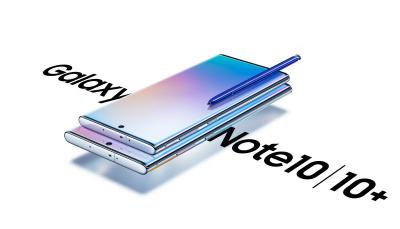
The most popular model in Korea is currently the 256Gb Galaxy Note 10+. The Note 10 features a 6.3" 2280x1080, 401 PPI, Dynamic Infinity-O AMOLED display (6.8" 3040x1440, 498 PPI, on the Note 10+) with an under-the-display fingerprint sensor. Displaymate says that this is the world's best smartphone display ever.
Pagination
- Previous page
- Page 29
- Next page


